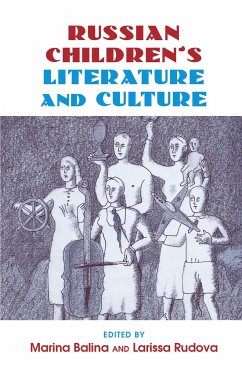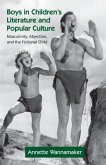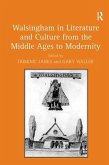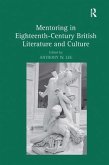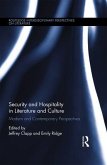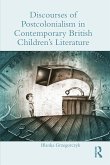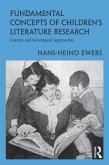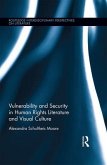Marina Balina / Larissa Rudova (eds.)
Russian Children's Literature and Culture
Herausgeber: Balina, Marina; Rudova, Larissa
Marina Balina / Larissa Rudova (eds.)
Russian Children's Literature and Culture
Herausgeber: Balina, Marina; Rudova, Larissa
- Gebundenes Buch
- Merkliste
- Auf die Merkliste
- Bewerten Bewerten
- Teilen
- Produkt teilen
- Produkterinnerung
- Produkterinnerung
Soviet literature in general and Soviet children's literature in particular have often been labeled by Western and post-Soviet Russian scholars and critics as propaganda. Below the surface, however, Soviet children's literature and culture allowed its creators greater experimental and creative freedom than did the socialist realist culture for adults. This volume explores the importance of children's culture, from literature to comics to theater to film, in the formation of Soviet social identity and in connection with broader Russian culture, history, and society.
Andere Kunden interessierten sich auch für
![Boys in Children's Literature and Popular Culture Boys in Children's Literature and Popular Culture]() Annette WannamakerBoys in Children's Literature and Popular Culture216,99 €
Annette WannamakerBoys in Children's Literature and Popular Culture216,99 €![Walsingham in Literature and Culture from the Middle Ages to Modernity Walsingham in Literature and Culture from the Middle Ages to Modernity]() Walsingham in Literature and Culture from the Middle Ages to Modernity206,99 €
Walsingham in Literature and Culture from the Middle Ages to Modernity206,99 €![Mentoring in Eighteenth-Century British Literature and Culture Mentoring in Eighteenth-Century British Literature and Culture]() Mentoring in Eighteenth-Century British Literature and Culture206,99 €
Mentoring in Eighteenth-Century British Literature and Culture206,99 €![Security and Hospitality in Literature and Culture Security and Hospitality in Literature and Culture]() Security and Hospitality in Literature and Culture206,99 €
Security and Hospitality in Literature and Culture206,99 €![Discourses of Postcolonialism in Contemporary British Children's Literature Discourses of Postcolonialism in Contemporary British Children's Literature]() Blanka GrzegorczykDiscourses of Postcolonialism in Contemporary British Children's Literature206,99 €
Blanka GrzegorczykDiscourses of Postcolonialism in Contemporary British Children's Literature206,99 €![Fundamental Concepts of Children's Literature Research Fundamental Concepts of Children's Literature Research]() Hans-Heino EwersFundamental Concepts of Children's Literature Research216,99 €
Hans-Heino EwersFundamental Concepts of Children's Literature Research216,99 €![Vulnerability and Security in Human Rights Literature and Visual Culture Vulnerability and Security in Human Rights Literature and Visual Culture]() Alexandra Schultheis MooreVulnerability and Security in Human Rights Literature and Visual Culture217,99 €
Alexandra Schultheis MooreVulnerability and Security in Human Rights Literature and Visual Culture217,99 €-
-
-
Soviet literature in general and Soviet children's literature in particular have often been labeled by Western and post-Soviet Russian scholars and critics as propaganda. Below the surface, however, Soviet children's literature and culture allowed its creators greater experimental and creative freedom than did the socialist realist culture for adults. This volume explores the importance of children's culture, from literature to comics to theater to film, in the formation of Soviet social identity and in connection with broader Russian culture, history, and society.
Hinweis: Dieser Artikel kann nur an eine deutsche Lieferadresse ausgeliefert werden.
Hinweis: Dieser Artikel kann nur an eine deutsche Lieferadresse ausgeliefert werden.
Produktdetails
- Produktdetails
- Verlag: Routledge
- Seitenzahl: 412
- Erscheinungstermin: 4. Oktober 2007
- Englisch
- Abmessung: 235mm x 157mm x 29mm
- Gewicht: 817g
- ISBN-13: 9780415978644
- ISBN-10: 0415978645
- Artikelnr.: 21671820
- Herstellerkennzeichnung
- Libri GmbH
- Europaallee 1
- 36244 Bad Hersfeld
- gpsr@libri.de
- Verlag: Routledge
- Seitenzahl: 412
- Erscheinungstermin: 4. Oktober 2007
- Englisch
- Abmessung: 235mm x 157mm x 29mm
- Gewicht: 817g
- ISBN-13: 9780415978644
- ISBN-10: 0415978645
- Artikelnr.: 21671820
- Herstellerkennzeichnung
- Libri GmbH
- Europaallee 1
- 36244 Bad Hersfeld
- gpsr@libri.de
Marian Balina is Professor Russian at Illinois Wesleyan University. She has co-edited a number of collections, including Politiciing Magic: Russian and Soviet FairyTales (2005), Dictionary of Literary Biography: RussianWriters Since 1980 (2003), and Endquote: Sots-ArtLiterature and Soviet Empire Style (2000). LarissaRudova is Associate Professor of Russian at Pomona College. She is author of Pasternak's Early Fiction andthe Cultural Vanguard (1994) and Understanding BorisPasternak (1997).
Series Editor's Foreword
Preface
INTRODUCTION: Reading Soviet and Post-Soviet Children's Culture: Contexts
and Challenges
1. Creativity through Restraint: The Beginnings of Soviet Children's
Literature
Marina Balina
2. From Character Building to Criminal Pursuits: Russian Children's
Literature in Transition
PART I Ideology, Literature, and Culture: Genres, Themes, and Issues
3. The Whole Real Children's World: School Novella and "Our Happy
Childhood"
Evgeny Dobrenko
4. Between Sputnik and Gagarin: Space Flight, Children's Periodicals, and
the Circle of Imagination
Anindita Banerjee
5. Crafting the Self: Narratives of Pre-Revolutionary Childhood in Soviet
Literature
Marina Balina
6. Literature and Cultural Institutions By and For Soviet and Post-Soviet
Youth
Lisa Ryoko Wakamiya
PART II Popular Children's Entertainment
7. Arresting Development: A Brief History of Soviet Cinema for Children and
Adolescents
Alexandr Prokhorov (College of William and Mary)
8. Comforting Creatures in Children's Cartoons
Birgit Beumers (U of Bristol)
9. Juggernaut in Drag: Theater for Stalin's Children
Boris Wolfson (USC)
10. 'Nice, Instructive Stories Their Psychology Can Grasp': How to Read
Post-Soviet Russian Children's Comics
Jose Alaniz (U of Washington)
PART III: Authors and Texts
11. Samuil Marshak-Yesterday and Today
Ben Hellman (University of Helsinki)
12. Lev Kassil': Childhood as Religion and Ideology
Inessa Medzhibovskaya (Eugene Lang College, The New School)
13. Pavel Bazhov's Skazy: Discovering the Soviet Uncanny
Mark Lipovetsky (U of Colorado)
14. A Traditionalist in the Land of Innovators: the Paradoxes of Sergei
Mikhalkov
Elena Prokhorova (University of Richmond)
15. Evgenii Shvarts's Fairy Tale Dramas: Theater, Power, and the Naked
Truth
Anja Tippner (University of Salzburg)
16. Invitation to a Subversion: The Playful Literature of Grigorii Oster
Larissa Rudova (Pomona College)
Contributors
Index
Preface
INTRODUCTION: Reading Soviet and Post-Soviet Children's Culture: Contexts
and Challenges
1. Creativity through Restraint: The Beginnings of Soviet Children's
Literature
Marina Balina
2. From Character Building to Criminal Pursuits: Russian Children's
Literature in Transition
PART I Ideology, Literature, and Culture: Genres, Themes, and Issues
3. The Whole Real Children's World: School Novella and "Our Happy
Childhood"
Evgeny Dobrenko
4. Between Sputnik and Gagarin: Space Flight, Children's Periodicals, and
the Circle of Imagination
Anindita Banerjee
5. Crafting the Self: Narratives of Pre-Revolutionary Childhood in Soviet
Literature
Marina Balina
6. Literature and Cultural Institutions By and For Soviet and Post-Soviet
Youth
Lisa Ryoko Wakamiya
PART II Popular Children's Entertainment
7. Arresting Development: A Brief History of Soviet Cinema for Children and
Adolescents
Alexandr Prokhorov (College of William and Mary)
8. Comforting Creatures in Children's Cartoons
Birgit Beumers (U of Bristol)
9. Juggernaut in Drag: Theater for Stalin's Children
Boris Wolfson (USC)
10. 'Nice, Instructive Stories Their Psychology Can Grasp': How to Read
Post-Soviet Russian Children's Comics
Jose Alaniz (U of Washington)
PART III: Authors and Texts
11. Samuil Marshak-Yesterday and Today
Ben Hellman (University of Helsinki)
12. Lev Kassil': Childhood as Religion and Ideology
Inessa Medzhibovskaya (Eugene Lang College, The New School)
13. Pavel Bazhov's Skazy: Discovering the Soviet Uncanny
Mark Lipovetsky (U of Colorado)
14. A Traditionalist in the Land of Innovators: the Paradoxes of Sergei
Mikhalkov
Elena Prokhorova (University of Richmond)
15. Evgenii Shvarts's Fairy Tale Dramas: Theater, Power, and the Naked
Truth
Anja Tippner (University of Salzburg)
16. Invitation to a Subversion: The Playful Literature of Grigorii Oster
Larissa Rudova (Pomona College)
Contributors
Index
Series Editor's Foreword
Preface
INTRODUCTION: Reading Soviet and Post-Soviet Children's Culture: Contexts
and Challenges
1. Creativity through Restraint: The Beginnings of Soviet Children's
Literature
Marina Balina
2. From Character Building to Criminal Pursuits: Russian Children's
Literature in Transition
PART I Ideology, Literature, and Culture: Genres, Themes, and Issues
3. The Whole Real Children's World: School Novella and "Our Happy
Childhood"
Evgeny Dobrenko
4. Between Sputnik and Gagarin: Space Flight, Children's Periodicals, and
the Circle of Imagination
Anindita Banerjee
5. Crafting the Self: Narratives of Pre-Revolutionary Childhood in Soviet
Literature
Marina Balina
6. Literature and Cultural Institutions By and For Soviet and Post-Soviet
Youth
Lisa Ryoko Wakamiya
PART II Popular Children's Entertainment
7. Arresting Development: A Brief History of Soviet Cinema for Children and
Adolescents
Alexandr Prokhorov (College of William and Mary)
8. Comforting Creatures in Children's Cartoons
Birgit Beumers (U of Bristol)
9. Juggernaut in Drag: Theater for Stalin's Children
Boris Wolfson (USC)
10. 'Nice, Instructive Stories Their Psychology Can Grasp': How to Read
Post-Soviet Russian Children's Comics
Jose Alaniz (U of Washington)
PART III: Authors and Texts
11. Samuil Marshak-Yesterday and Today
Ben Hellman (University of Helsinki)
12. Lev Kassil': Childhood as Religion and Ideology
Inessa Medzhibovskaya (Eugene Lang College, The New School)
13. Pavel Bazhov's Skazy: Discovering the Soviet Uncanny
Mark Lipovetsky (U of Colorado)
14. A Traditionalist in the Land of Innovators: the Paradoxes of Sergei
Mikhalkov
Elena Prokhorova (University of Richmond)
15. Evgenii Shvarts's Fairy Tale Dramas: Theater, Power, and the Naked
Truth
Anja Tippner (University of Salzburg)
16. Invitation to a Subversion: The Playful Literature of Grigorii Oster
Larissa Rudova (Pomona College)
Contributors
Index
Preface
INTRODUCTION: Reading Soviet and Post-Soviet Children's Culture: Contexts
and Challenges
1. Creativity through Restraint: The Beginnings of Soviet Children's
Literature
Marina Balina
2. From Character Building to Criminal Pursuits: Russian Children's
Literature in Transition
PART I Ideology, Literature, and Culture: Genres, Themes, and Issues
3. The Whole Real Children's World: School Novella and "Our Happy
Childhood"
Evgeny Dobrenko
4. Between Sputnik and Gagarin: Space Flight, Children's Periodicals, and
the Circle of Imagination
Anindita Banerjee
5. Crafting the Self: Narratives of Pre-Revolutionary Childhood in Soviet
Literature
Marina Balina
6. Literature and Cultural Institutions By and For Soviet and Post-Soviet
Youth
Lisa Ryoko Wakamiya
PART II Popular Children's Entertainment
7. Arresting Development: A Brief History of Soviet Cinema for Children and
Adolescents
Alexandr Prokhorov (College of William and Mary)
8. Comforting Creatures in Children's Cartoons
Birgit Beumers (U of Bristol)
9. Juggernaut in Drag: Theater for Stalin's Children
Boris Wolfson (USC)
10. 'Nice, Instructive Stories Their Psychology Can Grasp': How to Read
Post-Soviet Russian Children's Comics
Jose Alaniz (U of Washington)
PART III: Authors and Texts
11. Samuil Marshak-Yesterday and Today
Ben Hellman (University of Helsinki)
12. Lev Kassil': Childhood as Religion and Ideology
Inessa Medzhibovskaya (Eugene Lang College, The New School)
13. Pavel Bazhov's Skazy: Discovering the Soviet Uncanny
Mark Lipovetsky (U of Colorado)
14. A Traditionalist in the Land of Innovators: the Paradoxes of Sergei
Mikhalkov
Elena Prokhorova (University of Richmond)
15. Evgenii Shvarts's Fairy Tale Dramas: Theater, Power, and the Naked
Truth
Anja Tippner (University of Salzburg)
16. Invitation to a Subversion: The Playful Literature of Grigorii Oster
Larissa Rudova (Pomona College)
Contributors
Index

